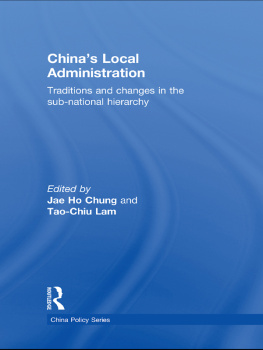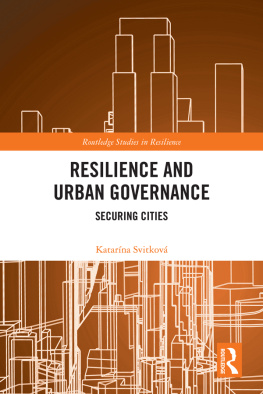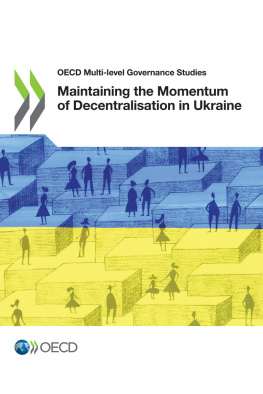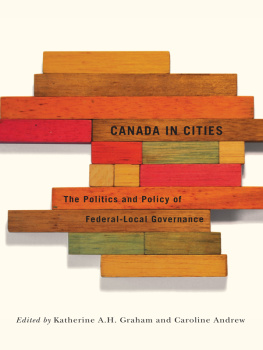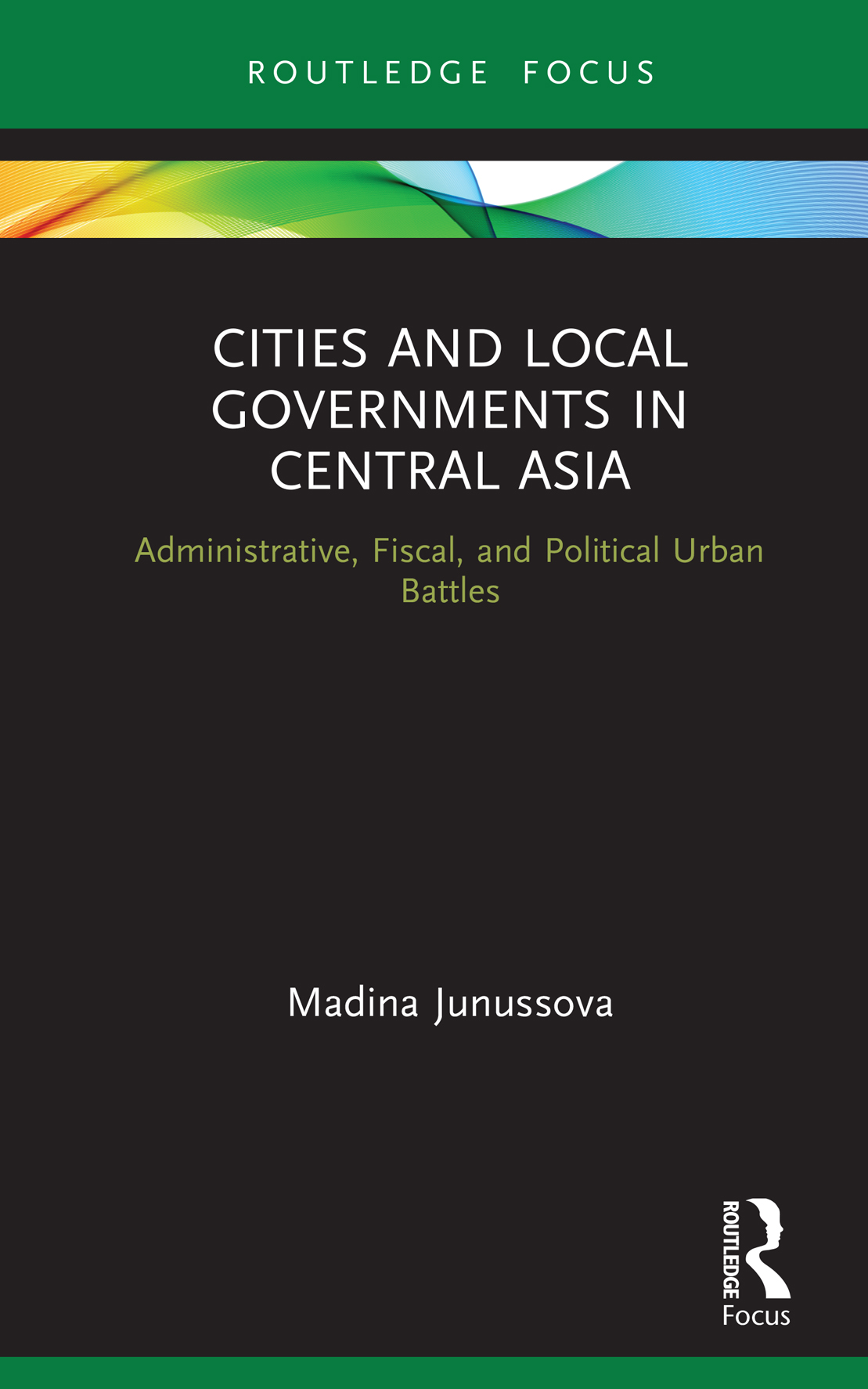
Cities and Local Governments in Central Asia
This book presents the changing roles of urban governments and how local governments struggle to gain administrative, fiscal, and political power to combat current urban challenges in Kazakhstan.
Focusing on the cities and regions selected by the national government of Kazakhstan to be the drivers of national economic development, the author analyses the impact of decentralization on the role of local governments. The book examines the practical experiences of city and regional governments with an emphasis on urban planning, public investment in national projects, and management of urban transport. Due to the complexity and irregular distribution of political reforms at different levels of local government in Kazakhstan, three separate studies are presented, each looking at a specific aspect of decentralization reform and local government function related to physical urban development and distribution of public investment. The author argues that, if the national government of Kazakhstan wants to concentrate economic resources in urban agglomerations, it is not enough to assume that local governments are ready to play the role of efficient planners and managers of urban development.
A useful analysis illustrating cities and urban conglomerations as engines of growth in economic development, this book will be of interest to academics studying Central Asian Studies, in particular political and economic development, Development Studies, and Urban Studies.
Madina Junussova is a Research Fellow at the Institute of Public Policy and Administration of the University of Central Asia, Kazakhstan/Kyrgyzstan/Tajikistan and a CERGE-EI Foundation Teaching Fellow.
Routledge Advances in Central Asian Studies
8 Turkish-Azerbaijani Relations
One NationTwo States?
Edited by Murad Ismayilov and Norman A. Graham
9 US Policies in Central Asia
Democracy, Energy and the War on Terror
Ilya Levine
10 E-Government in Kazakhstan
A Case Study of Multidimensional Phenomena
Maxat Kassen
11 Uzbekistans Foreign Policy
The Struggle for Recognition and Self-Reliance under Karimov
Bernardo Teles Fazendeiro
12 Nation-building and Personality Cult in Turkmenistan
The Trkmenbay Phenomenon
Fabio De Leonardis
13 Power and Water in Central Asia
Filippo Menga
14 Cities and Local Governments in Central Asia
Administrative, Fiscal, and Political Urban Battles
Madina Junussova
For a full list of titles please see https://www.routledge.com/Routledge-Advances-in-Central-Asian-Studies/book-series/RACAS
First published 2020
by Routledge
2 Park Square, Milton Park, Abingdon, Oxon OX14 4RN
and by Routledge
52 Vanderbilt Avenue, New York, NY 10017
Routledge is an imprint of the Taylor & Francis Group, an informa business
2020 Madina Junussova
The right of Madina Junussova to be identified as author of this work has been asserted by her in accordance with sections 77 and 78 of the Copyright, Designs and Patents Act 1988.
All rights reserved. No part of this book may be reprinted or reproduced or utilised in any form or by any electronic, mechanical, or other means, now known or hereafter invented, including photocopying and recording, or in any information storage or retrieval system, without permission in writing from the publishers.
Trademark notice: Product or corporate names may be trademarks or registered trademarks, and are used only for identification and explanation without intent to infringe.
British Library Cataloguing-in-Publication Data
A catalogue record for this book is available from the British Library
Library of Congress Cataloging-in-Publication Data
A catalog record has been requested for this book
ISBN: 978-0-367-27919-6 (hbk)
ISBN: 978-0-429-29875-2 (ebk)
Typeset in Times New Roman
by codeMantra
Writing a book can be a rewarding exercise when you are surrounded by wonderful people who believe in the power of knowledge and admire the value of original research. I am lucky to have such an extraordinary mentor and friend like Judith Ryser. Thank you, Judith, for inspiring me to write in English, reading my book drafts and giving me your valuable critical feedback. I am proud to say that while preparing my book I got a new young friend who is starting-up as an editor. Thank you, Aisara Yessenova, for relieving the stress by your kind assistance during the final preparation of the manuscript. I would like to thank the Routledge team who helped me to publish my first book in the English language. Special thanks to Dorothea Schaefter and Alexandra de Brauw for their patience and editorial support.
This book would not exist if my colleagues from the Institute of Public Policy and Administration of the University of Central Asia did not suggest to me to develop my thesis into a book and make it available for a wider readership. Thank you, Bohdan Krawchenko and Roman Mogilevskii for your leadership and academic advice. I wish to express my special appreciation to my colleagues from Canada who supervised my PhD thesis that was used as a foundation of this book. Thank you, Professor Leslie A. Pal and Professor Christopher Stoney from Carleton University, and Professor David Amborski from Ryerson University for your excellent support, critical comments, and encouragement provided throughout the work on the case studies.
I am thankful to my wonderful mother, Svetlana Burtaeva, who continuously supported my every step. I wish to express my deepest appreciation to my husband, Yelbossyn Babalyk, who took a great load off my shoulders by taking care of our kids when I was busy with writing. Finally, I want to thank my daughters Zagira and Zhanel for curiosity and creative suggestions.
This book is written based on my doctoral dissertation and it aims to discuss the role of local governments in national development in the Central Asian context. The book shows how decentralisation aiming all subnational governments has a different impact on the city and regional governments. It includes the assessment of why city governments fail to provide local needs despite continuous administrative, fiscal, and political reforms. The book does not aim to call for devolution and extreme independence of local governments; rather, it emphasises the importance of intergovernmental cooperation for addressing urban development needs. The book focuses on the actual local practices and includes the results of place-based case studies in four cities and four regions of Kazakhstan. It gives a detailed picture of practical activities of local governments dealing with urban planning, implementation of national projects, and management of urban transport. The book does not aim to test, approve, or disapprove any western decentralisation theories, but it introduces clarity about how urbanisation-driven decentralisation in the Central Asian context influences local development.
Decentralisation reforms came to Central Asian countries together with external international aid. Since the 1970s, scholars have started to advise local governments to maintain a certain level of independence to achieve more effective and efficient economic development (Rondinelli & Nellis, 1986). Close to the 1980s, decentralisation or the empowering local governments concept became a vital part of the external aid for all developing countries despite their differing social and economic traditions. Decentralisation was not something that evolved naturally from inside the Central Asian countries, but it rather formed part of political and economic reforms imposed by the national government during the economic liberalisation process.
Next page

